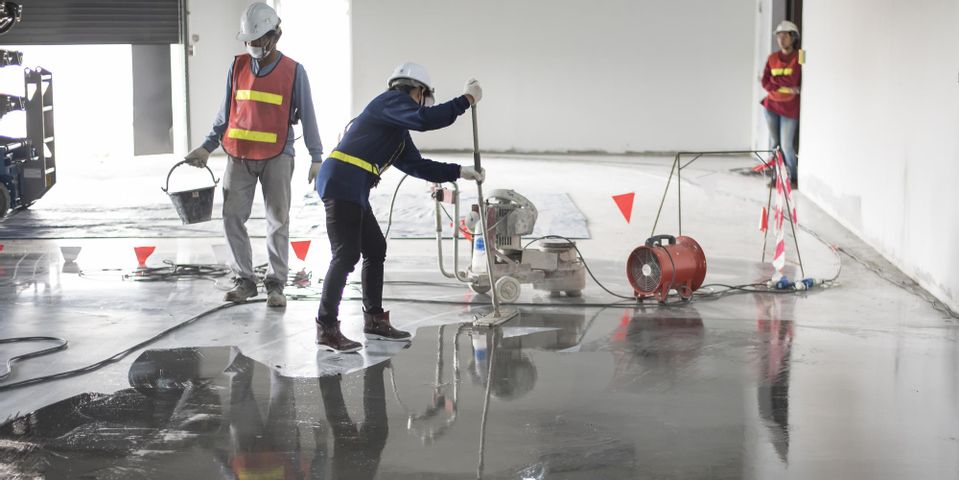
If you’re thinking about new flooring for your home or business, epoxy flooring has much to offer in terms of durability, style, and resistance. Find out more about this flooring below, so you can make an informed decision.
What Is Epoxy Flooring?
Epoxy consists of polymer resin and a hardening agent. These chemicals are mixed together and applied over an existing surface, such as a concrete floor. A chemical reaction between the two substances causes the material to harden over a few days. Once hardened, subsequent layers are applied. In general, epoxy layers measure two millimeters or more in thickness.
Are There Different Types?
 Some manufacturing plants, such as those that make electronic components, must cut down on static electricity in the building. Anti-static epoxy floors contain a compound that disperses static electricity.
Some manufacturing plants, such as those that make electronic components, must cut down on static electricity in the building. Anti-static epoxy floors contain a compound that disperses static electricity.
If the existing flooring is cracked or uneven, a self-leveling epoxy floor is the best selection.
Quartz sand can also be added to epoxy, which increases chemical and impact resistance.
What Are the Benefits of Epoxy Flooring?
Because epoxy can be installed over existing floors, it’s usually a more affordable option. It also holds up well against hazards that can damage other flooring systems. When used in a garage, epoxy won’t degrade or wear down from exposure to corrosive chemicals, like gasoline.
Its inherent durability means that it can last up to ten years. Epoxy is also easy to maintain: just sweep and mop to remove dirt and debris.
If you’re interested in epoxy flooring installation, turn to Tillotson Enterprise in Kearny, NE. With more than three decades of experience, their technicians are highly trained and have the proper certifications, so you can trust in their work. Visit them online for more information on their products and services. Call (308) 234-6685 to schedule a no-obligation inspection.
About the Business
(2 reviews)
Have a question? Ask the experts!
Send your question

